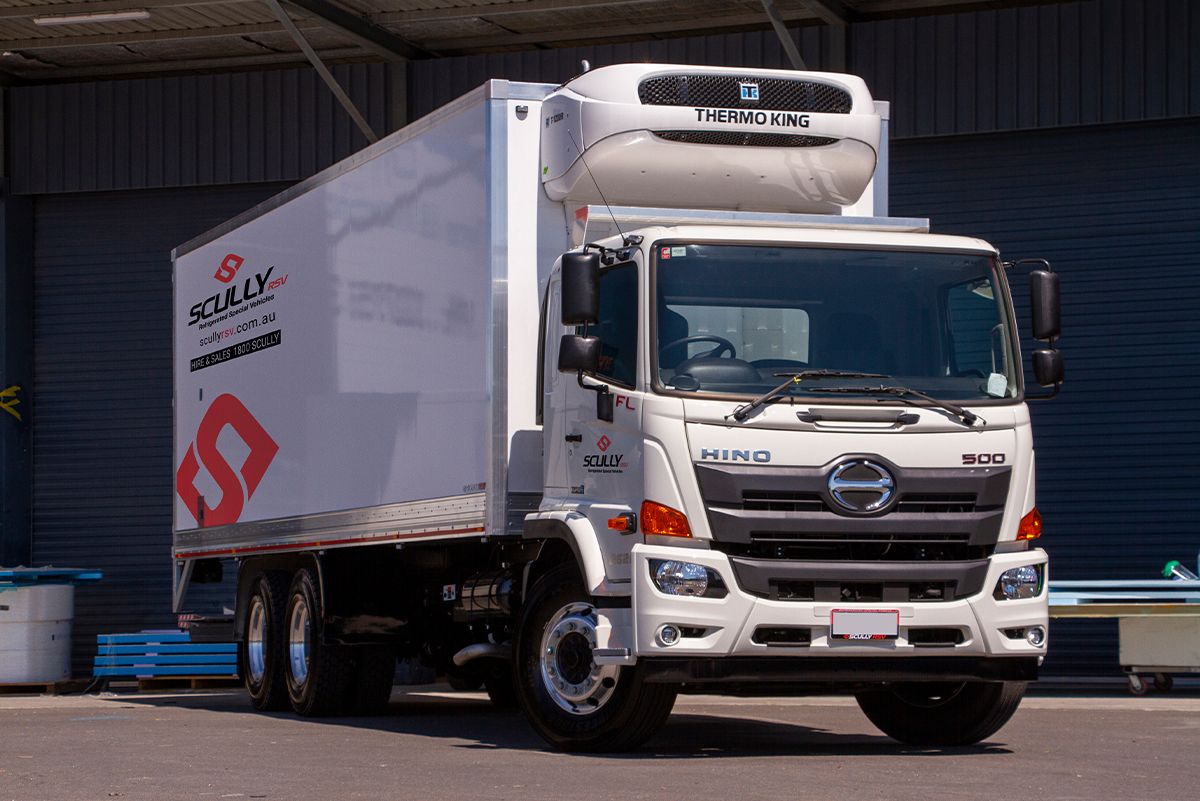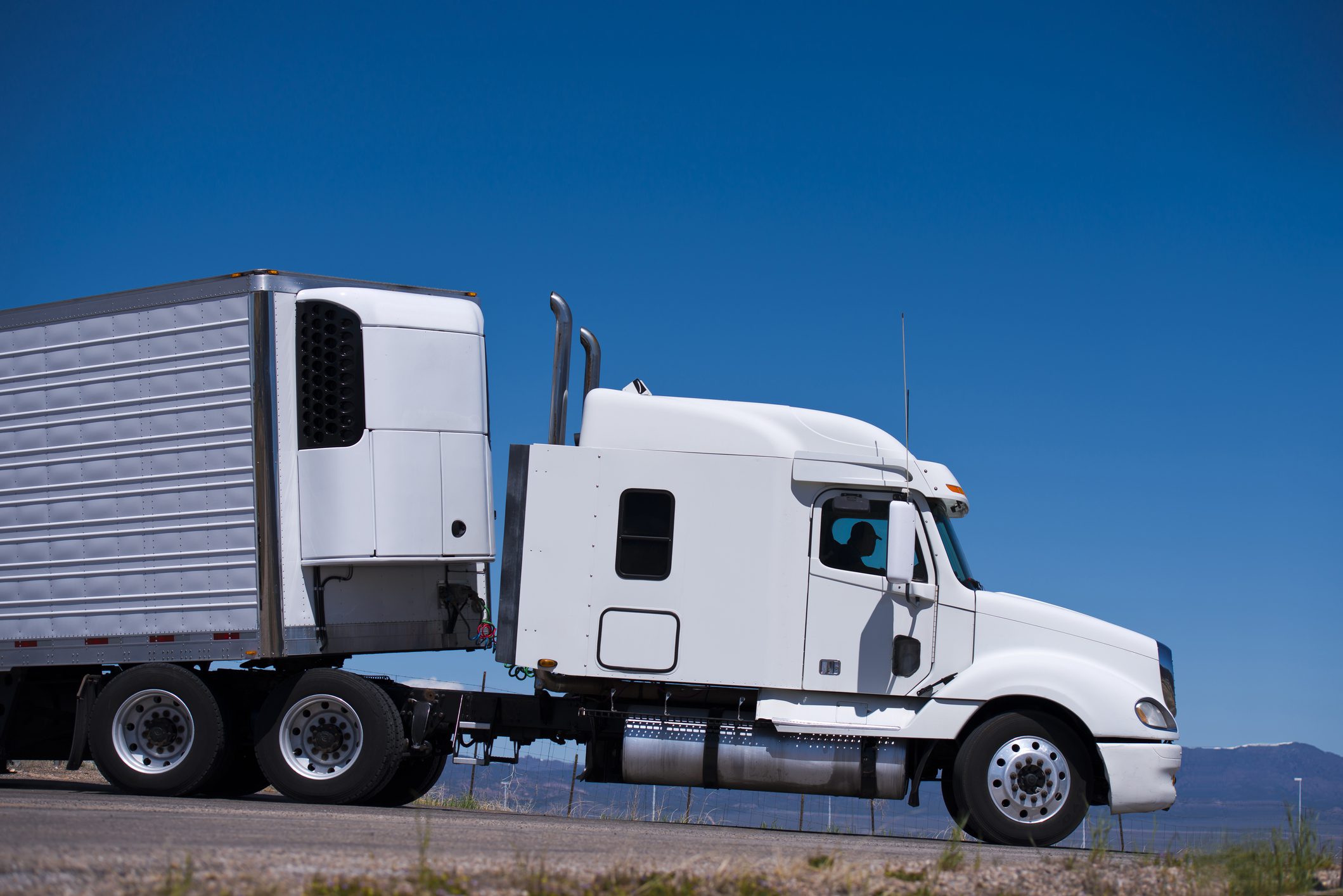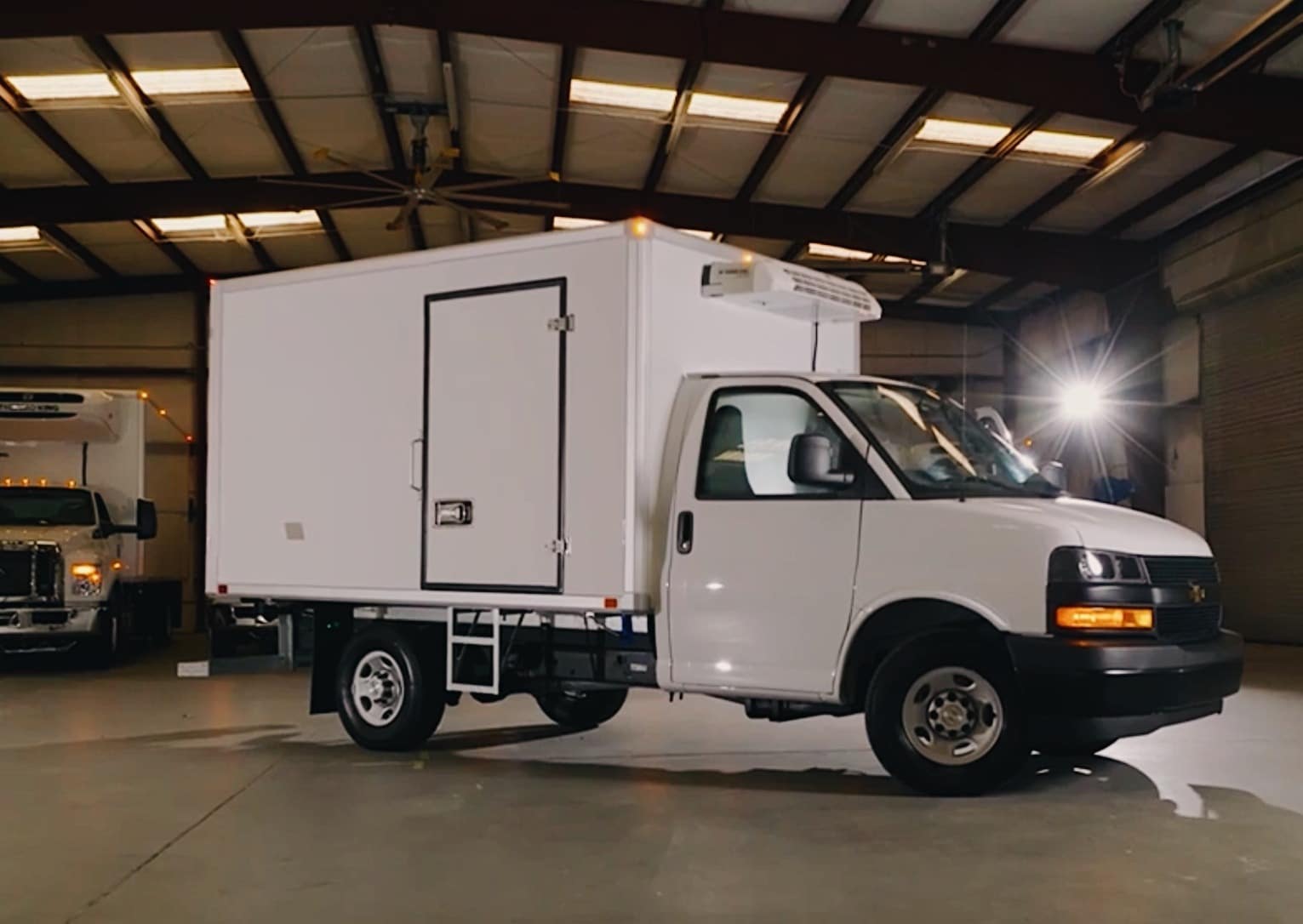Thermo King Truck Refrigeration: Effective Cooling for Your Fleet
Thermo King Truck Refrigeration: Effective Cooling for Your Fleet
Blog Article
Leading Innovations in Transportation Refrigeration: Enhancing Effectiveness and Security
The landscape of transport refrigeration is undergoing considerable change, driven by advancements targeted at enhancing both performance and safety. Secret developments such as smart temperature surveillance systems, green cooling agents, and automated route optimization are pivotal in dealing with the sector's challenges. These innovations not only make certain the honesty of temperature-sensitive goods but additionally contribute to sustainability efforts. As these developments continue to advance, it is necessary to discover their implications on operational methods and regulatory compliance, motivating a closer examination of exactly how they reshape the future of transport refrigeration.
Smart Temperature Keeping An Eye On Systems
In the realm of transport refrigeration, clever temperature surveillance systems have actually become a vital technology for making sure the stability of temperature-sensitive goods. These innovative systems utilize Internet of Things (IoT) modern technology to supply real-time information on temperature level variations, making it possible for drivers to keep optimal conditions throughout the supply chain. By continuously tracking the temperature level of cooled containers and lorries, firms can promptly determine discrepancies that might endanger item top quality.

In addition, clever monitoring systems typically incorporate automated informs and alerts, allowing stakeholders to react quickly to any potential issues. This proactive strategy not just decreases the risk of perishing but likewise enhances conformity with governing standards governing food safety and pharmaceutical transport.
The assimilation of information analytics within these systems also promotes predictive maintenance, assisting operators to predict potential equipment failings prior to they take place. This capability decreases downtime and maximizes functional effectiveness, ultimately causing cost financial savings.
Eco-Friendly Refrigerants
Smart temperature level surveillance systems play a vital function in preserving item high quality, but the effectiveness of transport refrigeration likewise hinges on the selection of cooling agents utilized. As environmental worries climb, the change in the direction of eco-friendly refrigerants has ended up being crucial. Traditional cooling agents, such as hydrofluorocarbons (HFCs), are well-known for their high Worldwide Warming Possible (GWP), contributing substantially to environment adjustment. On the other hand, arising alternatives like hydrocarbon-based refrigerants and hydrofluoroolefins (HFOs) existing reduced GWP choices, using both performance and sustainability.
These environmentally friendly cooling agents not only minimize ecological impact yet likewise align with international policies intended at eliminating dangerous compounds. Their fostering can cause enhanced energy effectiveness, ultimately minimizing operating expense for transportation refrigeration systems. The use of all-natural cooling agents, such as ammonia and carbon dioxide, has acquired grip due to their excellent thermodynamic properties and lower ecological impact.
Investing in green cooling agents is not just a governing compliance procedure; it represents a calculated decision that enhances brand track record and cultivates customer loyalty. reefer trucks thermo king. By prioritizing sustainable practices, firms can add to a greener future while ensuring the stability of delivered goods
Advanced Insulation Materials
Using sophisticated insulation materials is crucial for optimizing transportation refrigeration systems, as they substantially boost energy efficiency and maintain constant temperature level control. Typical insulation methods typically fall brief in stopping thermal transfer, causing raised energy usage and varying temperature levels within refrigerated compartments.
Emerging products such as vacuum cleaner protected panels (VIPs) and aerogels offer premium thermal resistance, enabling thinner profiles without endangering performance. VIPs, as an example, use a vacuum cleaner layer to minimize conductive and convective warmth transfer, making them excellent for space-constrained applications. Aerogels, understood for their lightweight and permeable structure, provide remarkable insulation while dramatically reducing general system weight.
Moreover, including phase modification materials (PCMs) right into insulation systems can additionally stabilize temperatures throughout transportation. These materials soak up and launch thermal power, properly buffering against external temperature variations.
The combination of these sophisticated insulation materials not only lowers the functional prices related to energy intake however likewise extends the rack life of temperature-sensitive products. As the transport refrigeration sector continues to progress, the fostering of ingenious insulation modern technologies will certainly be essential in enhancing both effectiveness and safety in chilled transportation.
Automated Route Optimization
The efficiency of transportation refrigeration systems is greatly boosted through automated path optimization, More about the author which leverages advanced algorithms and real-time data to determine one of the most efficient courses for distribution. By assessing various variables such as web traffic patterns, weather, and delivery home windows, these systems can significantly decrease travel time and gas consumption.
Automated route optimization minimizes human mistake and subjective decision-making, which can cause inefficiencies. This innovation enables fleet managers to allot resources a lot more efficiently, ensuring that cooled goods keep their needed temperature level throughout the trip. By optimizing courses, companies can additionally enhance consumer satisfaction through prompt deliveries.
In addition, automated systems can adapt to unforeseen conditions, such as road closures or unexpected traffic spikes, enabling dynamic reference rerouting. This flexibility not just protects the stability of temperature-sensitive items but also adds to overall functional efficiency.
Applying automated route optimization can result in substantial expense savings while lowering the carbon footprint connected with transport. As services increasingly prioritize sustainability, this technology attracts attention as a critical component in modern-day transportation refrigeration, straightening operational objectives with environmental duty. Eventually, automated route optimization stands for a substantial development in the quest for performance and safety in transport refrigeration.

Real-Time Information Analytics
Automated route optimization considerably advantages from the assimilation of real-time information analytics, which supplies crucial insights into the performance of transportation refrigeration systems. By making use of real-time information, transport operators can keep an eye on temperature changes and equipment efficiency, ensuring that perishable goods are preserved within called for parameters throughout transit. This positive strategy not only enhances the top quality of the transferred items but additionally mitigates the risk of wasting and loss.

In addition to enhancing efficiency, real-time analytics improves safety by ensuring conformity with regulatory standards for temperature click to find out more control. This not just secures public wellness yet also strengthens a firm's track record - thermo king transport refrigeration. As the transport refrigeration industry evolves, the combination of real-time information analytics emerges as a keystone for driving innovation, sustainability, and operational excellence
Verdict
To conclude, the developments in transport refrigeration significantly improve both effectiveness and safety and security within the industry. Smart temperature level monitoring systems and real-time information analytics give crucial oversight, while eco-friendly cooling agents and progressed insulation products add to sustainability and energy efficiency. Moreover, automated route optimization formulas not only lower traveling time yet additionally minimize environmental impact. Collectively, these advancements stand for an important development in transportation refrigeration, guaranteeing compliance with regulatory criteria and advertising a greener future.
The landscape of transportation refrigeration is undergoing considerable makeover, driven by technologies intended at enhancing both effectiveness and safety and security.Smart temperature monitoring systems play a crucial function in keeping item high quality, however the efficiency of transport refrigeration also pivots on the selection of refrigerants made use of. Their fostering can lead to enhanced energy effectiveness, ultimately lowering operating expenses for transportation refrigeration systems. Ultimately, automated route optimization represents a considerable advancement in the pursuit for performance and security in transport refrigeration.
In final thought, the advancements in transportation refrigeration significantly improve both effectiveness and safety within the industry.
Report this page